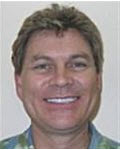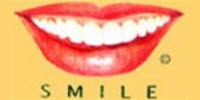Call (925) 820-6623
Dental Waterlines
Have you heard about biofilm? Our dental office monitors it daily. Possibly you'll catch something on TV about biofilm as some sort of newly discovered health threat. It's neither, really. Here are the facts:
Most of our dental equipment is connected to long, flexible tubes that deliver water to your mouth. We call these tubes dental waterlines. Every day, fresh water rushes through them. But overnight or over the weekend, water trapped in these long tubes has the potential of being colonized by a thin layer of microorganisms.
Those microorganisms are biofilm. It's just as important we keep our waterlines free of biofilm as it is you keep your teeth free of plaque through regular brushing.
We've known about biofilm for years. Every morning, all our waterlines are cleared before the first patient arrives. Our dental chairs are equipped with check valves that make sure waterline delivery goes only one way-into the mouth and down the drain.
All this to combat a health hazard that is so far only theoretical-we have no evidence of illness related to water from a dental waterline. Even if it existed, the marginally higher bacteria counts wouldn't necessarily pose a hazard to healthy patients. Bacteria is everywhere-in drinking water, the air we breathe. Getting rid of it is the job of our immune systems.
News organizations love to discover what they believe to be health threats, because it keeps viewers tuned in. But biofilm (if it exists at all) is something we've known about and protected patients against for years.
Call for an appointment:
(925) 820-6623
Make an Appointment
Don't Forget to Floss!
Clean between teeth daily with floss or an interdental cleaner. Decay-causing bacteria can hid between teeth where toothbrush bristles can't reach. Flossing helps remove plaque and food particles from between teeth and under the gum line.
Visit Our Office Regularly!
Take good care of your smile. Remember to visit the dentist regularly for professional cleanings and oral exams.
Mouthwash Is Important, Too!
Brushing and flossing may not be enough. The ADA now recommends using an antimicrobial mouthwash to reduce plaque and prevent gingivitis.




